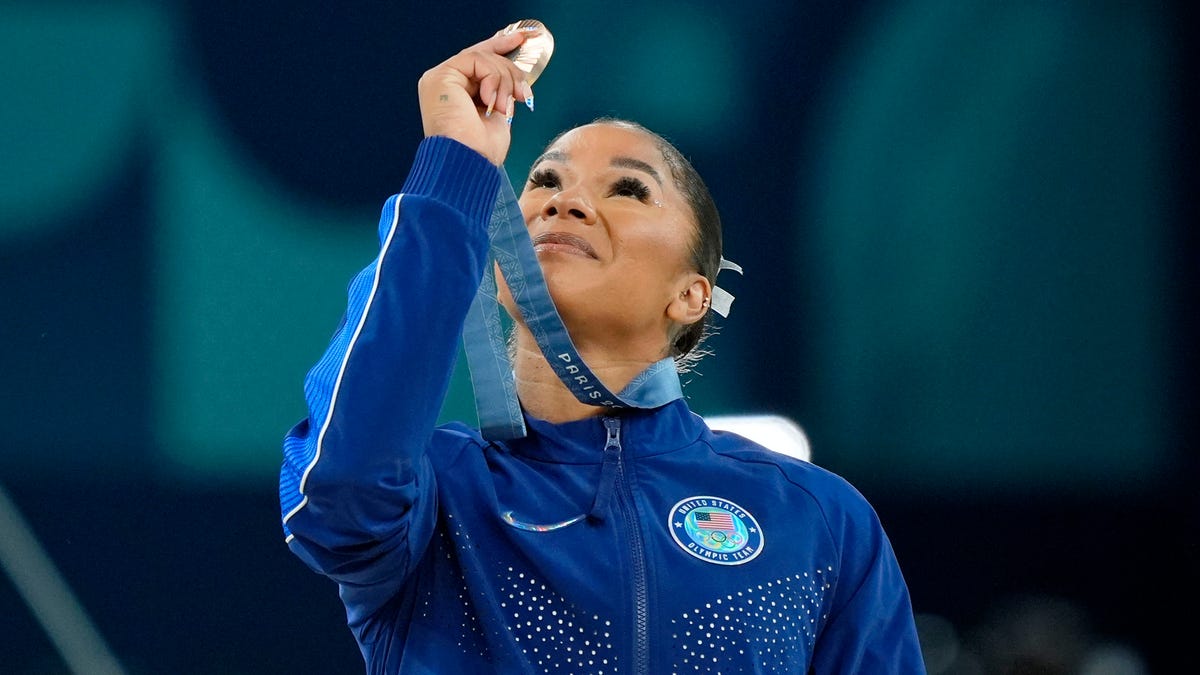The Court of Arbitration for Sport won’t change its decision that took away Jordan Chiles’ bronze medal
On Monday, USA Gymnastics announced that the Court of Arbitration for Sport (CAS) has decided not to revisit its ruling regarding the women’s floor exercise at the 2024 Paris Olympics, a decision that has led to Jordan Chiles losing her bronze medal.
According to USA Gymnastics, they possess clear video evidence that could potentially refute the basis of CAS’s earlier ruling. However, they stated via social media that CAS informed them its regulations “do not permit an arbitral award to be reconsidered even when new, definitive evidence is introduced.”
“We are extremely disheartened by this news and will continue to explore every option available for appeals, including taking the matter to the Swiss Federal Tribunal, to ensure that Jordan receives the correct score, ranking, and medal,” stated USA Gymnastics.
CAS elaborated on this matter in a statement released on Tuesday, clarifying: ”… New evidence (meaning evidence not known at the time of the CAS hearing) can be grounds for requesting the Swiss Federal Tribunal to reopen the case. The CAS can also choose to reopen the case on its own if all involved parties consent.”
This development comes shortly after the completion of the floor exercise competition, where a late inquiry by Chiles’ coaching staff sparked the ongoing situation.
The Start of the Jordan Chiles Dispute
During her final performance in the floor exercise, Chiles scored 13.666, which included a 0.1-point deduction for a flawed split leap, termed a tour jete full. This score placed her in fifth place, trailing behind both Ana Barbosu and another gymnast from Romania, Sabrina Maneca-Voinea, who achieved scores of 13.700.
In a surprising move, Chiles’ coach, Cecile Landi, formally contested that specific deduction—something she later described as a risky last-minute effort—and the judges accepted it. This revised Chiles’ score to 13.766, elevating her to third place, ahead of the two Romanians, one of whom had already celebrated by stepping onto the podium with her flag.
The Romanian Gymnastics Federation felt this sudden change was unjust, leading them to appeal to CAS. They argued that Landi had submitted her scoring inquiry four seconds late, missing the one-minute window allowed for appeals. The Romanian federation did not clarify how they determined the exact timing and has not replied to attempts for further comments. They also submitted a separate appeal for Maneca-Voinea, stating that she should not have been penalized for stepping out of bounds.
CASC’s decision came on Saturday, resulting in a cascade of actions among various Olympic organizations and ultimately leading the International Olympic Committee (IOC) to declare Barbosu as receiving the bronze medal with Chiles being stripped of hers.
Controversy Overshadowing Gymnasts’ Talent
The recent adjustments to medal allocations have largely been associated with incidents involving doping, until now.
On Sunday, USA Gymnastics revealed it has discovered new video evidence that undermines the Romanian Federation’s timeline. The U.S. organization has reportedly submitted this video to CAS as part of the appeal concerning the recent ruling made by the Swiss-based court.
This entire scenario places the athletes, particularly Chiles and Barbosu, in a challenging position.
Barbosu, aged 18, was visibly upset when the results were adjusted immediately after the competition, dropping her flag in disbelief. Meanwhile, Chiles, who was excited to earn her first individual medal, likely felt frustrated like Barbosu upon learning that the IOC has demanded the return of her bronze medal.
The Romanian Federation had actually requested that CAS rule that Barbosu, Chiles, and Maneca-Voinea all receive bronze medals. Instead, CAS deferred that decision to the International Gymnastics Federation (FIG), which then stated that all medal decisions fall under the jurisdiction of the IOC. The IOC clarified that the ordering of medals is based solely on the finishing positions, directing pressing inquiries to the FIG.

